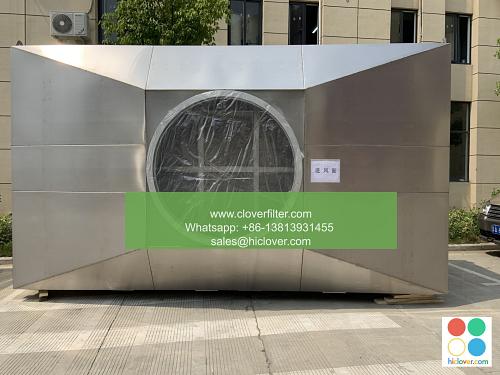Air Filter Certification: What It Means for Your Business

As a business owner, maintaining good indoor air quality (IAQ) is crucial for the health, comfort, and productivity of your employees, customers, and stakeholders. One essential aspect of achieving good IAQ is the use of high-quality air filters that meet or exceed industry standards. Air filter certification is a voluntary process that ensures air filters meet specific requirements for efficiency, safety, and performance. In this article, we will delve into the world of air filter certification, exploring its significance, application areas, and benefits for your business.
Understanding Air Filter Certification
Air filter certification involves testing and validating the performance of air filters against established standards, such as those set by the American Society of Heating, Refrigerating, and Air-Conditioning Engineers (ASHRAE) or the Institute of Environmental Sciences and Technology (IEST). Certification programs, like the ASHRAE 52.2 standard, evaluate air filters based on factors such as:
* Particle removal efficiency
* Airflow resistance
* Filter media quality
* Frame and construction integrity
Benefits of Air Filter Certification for Your Business
Investing in certified air filters can bring numerous benefits to your business, including: Certified air filters have a wide range of application areas, including: In conclusion, air filter certification is a critical aspect of maintaining good indoor air quality and ensuring the health, comfort, and productivity of building occupants. By investing in certified air filters, businesses can reap numerous benefits, including improved IAQ, reduced energy consumption, and compliance with regulations. Whether you operate a commercial building, industrial facility, healthcare facility, or data center, certified air filters are an essential component of a comprehensive Indoor Air Quality (IAQ) management strategy. Don’t compromise on the health and well-being of your stakeholders – choose certified air filters for a healthier, more productive, and more sustainable business environment. Prompt
* Improved Indoor Air Quality (IAQ): Certified air filters can capture up to 99.97% of airborne particles, including dust, pollen, mold, and bacteria, ensuring a healthier environment for occupants.
* Enhanced Employee Productivity: Good IAQ has been linked to improved cognitive function, reduced absenteeism, and increased productivity.
* Reduced Energy Consumption: Certified air filters can help lower energy costs by reducing the strain on HVAC systems and minimizing the need for frequent filter replacements.
* Compliance with Regulations: Using certified air filters can help businesses comply with OSHA and EPA regulations, avoiding potential fines and penalties.
* Commercial Buildings: Offices, retailers, restaurants, and hotels can benefit from improved IAQ and reduced energy consumption.
* Industrial Facilities: Manufacturing plants, warehouses, and distribution centers can use certified air filters to protect equipment and personnel from airborne contaminants.
* Healthcare Facilities: Hospitals, clinics, and medical offices require high-quality air filters to maintain a sterile environment and prevent the spread of infections.
* Data Centers: Certified air filters can help protect sensitive electronic equipment from damage caused by airborne particles and corrosion.Conclusion

